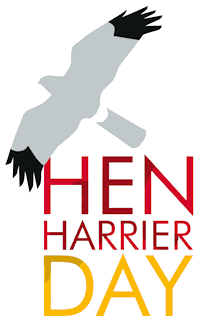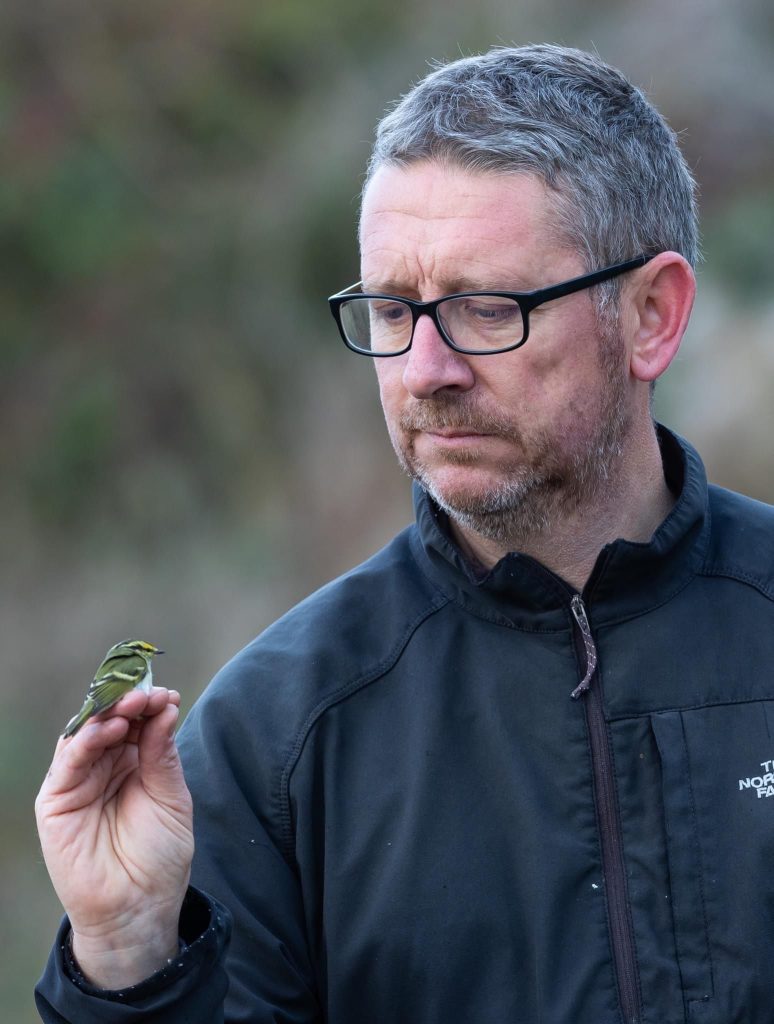
RSPB's Mark Thomas on Raptor Persecution and the latest Birdcrime Report
Following the publication of the latest RSPB 2022 Birdcrime Report, which annually documents the illegal persecution of birds of prey, we caught up with Mark Thomas, who heads up the RSPB’s 16-strong Investigations Team.
I wanted to work for the RSPB from a very young age, and I got my first job with them in 1997 as a warden, monitoring Little Terns on the beach at Great Yarmouth. I then took a job at RSPB headquarters – The Lodge – handling wildlife enquiries on the phone and by letter.
My interview for that job almost didn’t happen, as I turned up at The Lodge after doing a night shift on the Little Terns – in a lime green suit, my only one – and found myself accidentally joining a group on a guided tour. Fortunately, I realised after a few minutes, and managed to get back to reception in time for the interview and got the job.
About 5 years ago now, I got the job as Head of Investigations for the UK. We’ve grown the team from 5 to 16 staff in the last 10 years, we’ve now got more investigators including new roles based in Wales and Northern Ireland, and more staff in the Intelligence section, dealing with intel from the police and members of the public ringing the raptor crime hotline.
HHA: So what is the nature of your day-to-day role?
Now, it’s largely desk-based, managing the team and making sure they have the funds and the resources they need, regularly meeting with other partners such as the National Wildlife Crime Unit and most recently working with the Link Wildlife Crime Group on their own Wildlife Crime Report for 2022 which was published on the 5th December.
When will the killing stop?
HHA: In the latest Birdcrime Report, you pose the question “When will the killing stop?”. Can you see an end to it any time soon?
The key moment is when the person pulling the trigger to kill a raptor realises it actually has a greater value to shooting being alive. Every person that shoots a bird of prey is dealing a blow to the shooting industry and over time, increasing the likelihood of greater regulation. So they’re thinking “If I kill this Golden Eagle now, it’s going to make it much more difficult to continue to pursue my shooting hobby or business”.
Can the shooting industry regulate itself, Mark muses.
Has self-regulation failed? I’ve noticed that since the Birdcrime Report came out, there are lots of messages on Twitter to say, ‘this killing has to stop’, and that’s great. But we need to call those criminals out. We know who they are – most people in the shooting industry know who’s killing birds of prey – come out and name them.
That needs to happen really quickly because time is running out. The public know what’s going on, the politicians know what’s going on. The Scottish Government is introducing legislation to license grouse shooting, and that may come in as soon as next August. So next Autumn, any credible evidence of raptor persecution in Scotland could result in the removal of shooting licenses, and that will have a real commercial impact on those grouse moors and their owners. That will focus the mind!
HHA: Scotland is close, but how near do you think that other governments are to taking action?
The RSPB’s messaging has been really consistent for years now. We need licensing of (driven) grouse moors across the UK. In Wales there is only one grouse moor, but in England we really need it and, frankly, we’re nowhere near it. The fact that Scotland has made such great progress is probably closely linked to a large number of incidents targeting Golden Eagles, an iconic species for Scotland.
We don’t have that in England, but if you look at the statistics, the highest volume of illegal persecution incidents is in England, 72% of which are linked to gamebird shooting. So it’s clear that for England, it is where the bulk of incidents lie, and yet we are furthest away from introducing legislation. Time will tell.
HHA: You’ve also noted in the Report that better enforcement of existing legislation is important. Are you frustrated by the lack of interest from the courts in punishing offenders to the fullest extent?
We had a case in East Anglia where we found poisoned bait at a pheasant and partridge shoot and as a result of a police raid a gamekeeper was interviewed. The police discovered pictures of dead birds of prey on his phone, buzzards poisoned and shot dead on the property, and he admitted that he had killed them. We also found strychnine, which has been banned for a long time. And he had committed the further offence of releasing pheasants and partridges next to a designated Protected Site without permission.
Given the scale of the offending and the evidence we had, our conversations with the National Wildlife Crime Unit suggested that the gamekeeper – a supposed ‘guardian of the countryside’ – may actually be jailed. But the outcome of the sentencing was a fine and community service. I actually spoke to the media outside the court and said that it was hard not to be disappointed. A lot of work and expense had gone into pursuing the case.
It’s not because the magistrates and the court don’t have the powers – that gamekeeper could have been jailed for up to six months. And that would have moved this kind of offending to a different level and acted as a deterrent. Gamekeepers being told by their bosses to kill birds of prey might have thought twice. We’d like to see magistrates using the full extent of their powers, but they don’t have sentencing guidance for this kind of offence, which is out of the ordinary in the context of their typical cases before the court, like shoplifting.
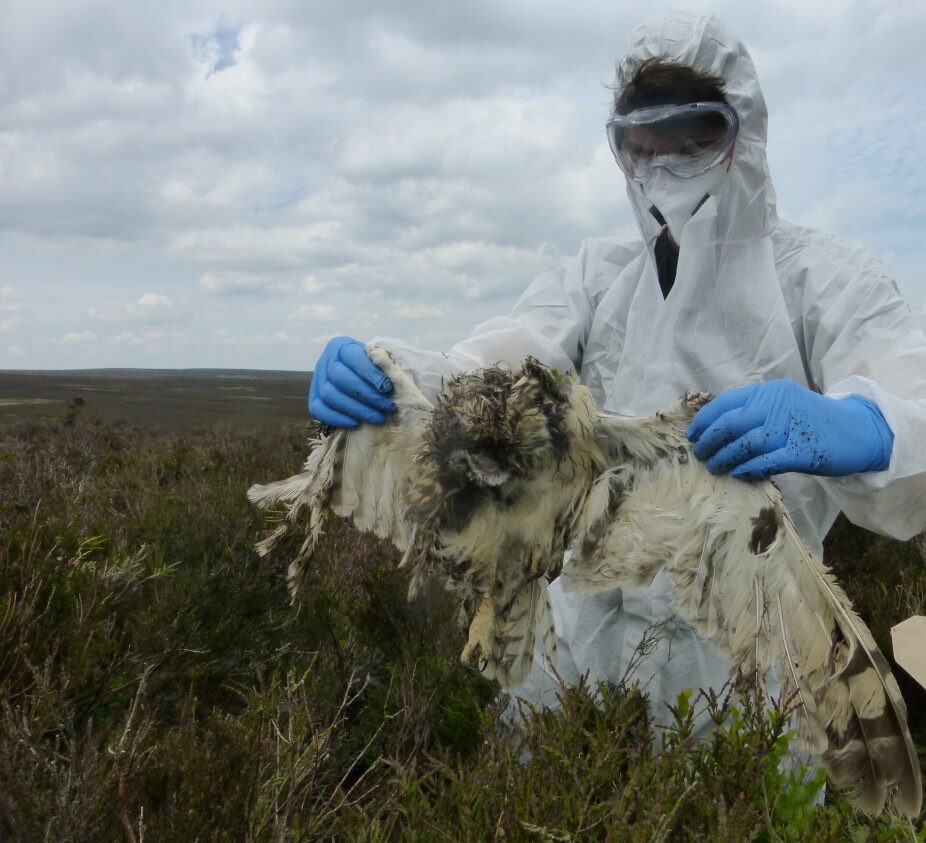
So we approach these cases by submitting an impact statement to explain what the persecution means for people in the countryside, and what it means for the birds, and try to convey the emotional impact of the illegal persecution. Sadly, in this case, it didn’t work.
We do see people jailed, rightly, for offences such as kicking a baby gull to death in the street while drunk, and yet here we have supposedly responsible individuals, with firearms, with banned poisons, on an estate with a hierarchy of management, on land that is designated, and they are killing a wide range of protected species. But the outcome after months of work is disappointing.
HHA: The case studies are very harrowing to read, these senseless, brutal crimes. How does this affect you and your team?
There are certainly times when we are down, but in the end, there are very few organisations that are working right on the front line to protect birds like we are. If we weren’t here, many of these cases wouldn’t get reported, they wouldn’t be investigated, and those offenders wouldn’t be caught. Our job is to also keep people informed about what is going on, based on our fieldwork, and to put doubt in the mind of the person who is pulling the trigger.
We’re a small team, and we have to punch above our weight. Our job is to get justice for birds that have no way of getting justice for themselves. I feel especially sorry for the members of our team who fit satellite tags to Hen Harriers, make a connection with them as chicks, monitor their movements daily, and then the next time they see the bird, often within months, it is dead, illegally killed. And they see that repeatedly.
One of the extraordinarily sad stories in the Birdcrime Report is of the 39 Hen Harriers illegally killed since January last year, often in the persecution hotspots like the Yorkshire Dales and North York Moors. The repeated impact of that can be devastating for the team.
HHA: How has Avian Influenza restricted your ability to investigate all of the raptor deaths you would have wanted to?
In the past, members of the public finding dead birds of prey would most likely have reported to the RSPB hotline, but since the onset of bird flu, the public now has another well-publicised choice, to report it to the Defra helpline. We know that over 200 birds of prey were reported this way in 2022, and we aren’t able to investigate the cause of death – which may not be bird flu – as the birds are not passed on for further examination.
Yet some of those birds are likely to be victims of persecution, simply based on where they were found. We could well be missing perhaps up to a third less than our annual total of confirmed poisoned birds, because of the changes resulting from bird flu. We know from a lot of scientific evidence that we are only scratching the surface of the true total of illegal persecution. Preliminary data suggests that we already have more incidents logged for 2023 that we had in the whole of 2022, and many of those are still under investigation.
You can’t glean much from one year’s figures in isolation, you have to look at the trends. And it’s clear that persecution is not going away. 2020 was the worst year on record, but the 39 Hen Harriers we have lost since last January 2022 is a huge total, and it includes over ten birds that were part of the controversial Brood Management Scheme. Those investigations are with the police, and they are ongoing.
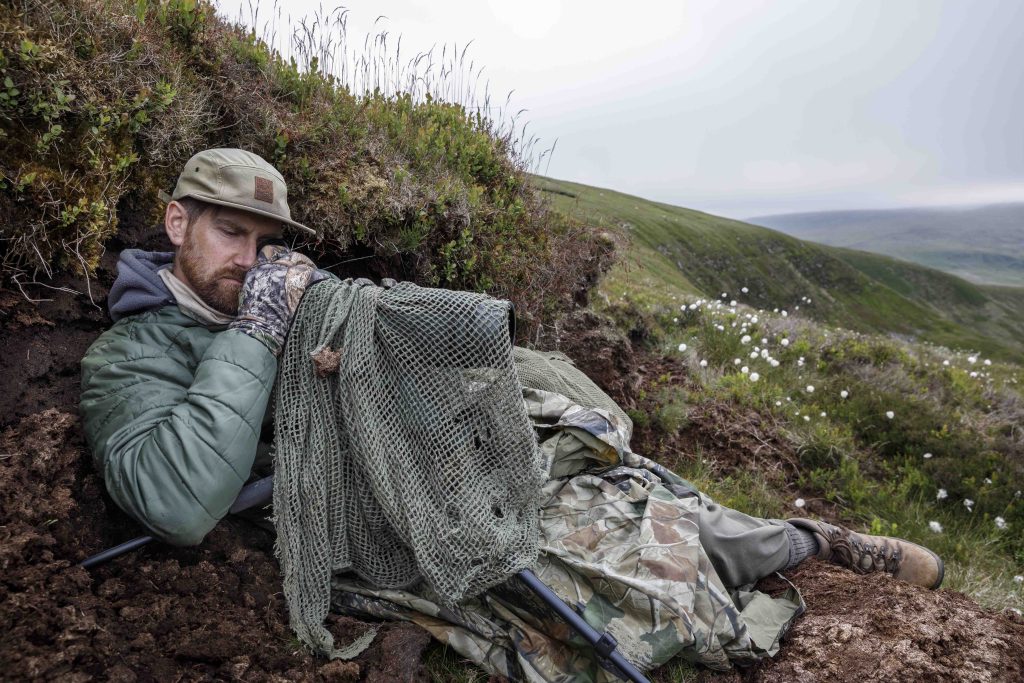
HHA: How do you see the Investigations Team developing in the future?
Any charity is always faced with many competing demands for funding. We are lucky in that the work we do captures the imagination, and it is high on our list of priorities, protecting birds from being illegally killed. The RSPB was founded to protect birds and the Investigations Team’s work remains one of the core objectives.
The donations for satellite tags are really important for us. Without satellite tags, we couldn’t track what is happening to Hen Harriers and so we are very dependent on that kind of generous support to help us monitor the birds. Tag technology is advancing all the time, and so our ability to track the birds is continually improving.
But it’s hard to keep up with the numbers of birds being killed. In the end, it’s going to be down to public pressure on the people pulling the trigger. It shouldn’t be an impossible commitment to ask people not to kill amazing, protected birds of prey like Golden Eagles and Hen Harriers.
HHA: You are calling for the urgent introduction of a licensing scheme, but many conservationists argue that there’s no place in the 21st century for this archaic Victorian ‘sport’. Why not call for an outright ban?
It’s not the RSPB’s position. We are a science-led organisation, and we want to campaign for better protection for birds using our data. We’ve got to use legislation to break the cycle of persecution. We genuinely believe that licensing would be sufficiently robust to tackle the problem and Scotland is going to be the first test of that.
If you are an estate that is following the law, as many do, you’ve got nothing to fear. But the first Scottish prosecutions after the introduction of the law will be hugely important, and those first cases will be fought very hard. Raptors depend on our work, and we are up for the continuing fight.
The donations for satellite tags are really important for us. Without satellite tags, we couldn’t track what is happening to Hen Harriers and so we are very dependent on that kind of generous support to help us monitor the birds. Tag technology is advancing all the time, and so our ability to track the birds is continually improving.
Mark Thomas, Head of Investigations, RSPB Tweet
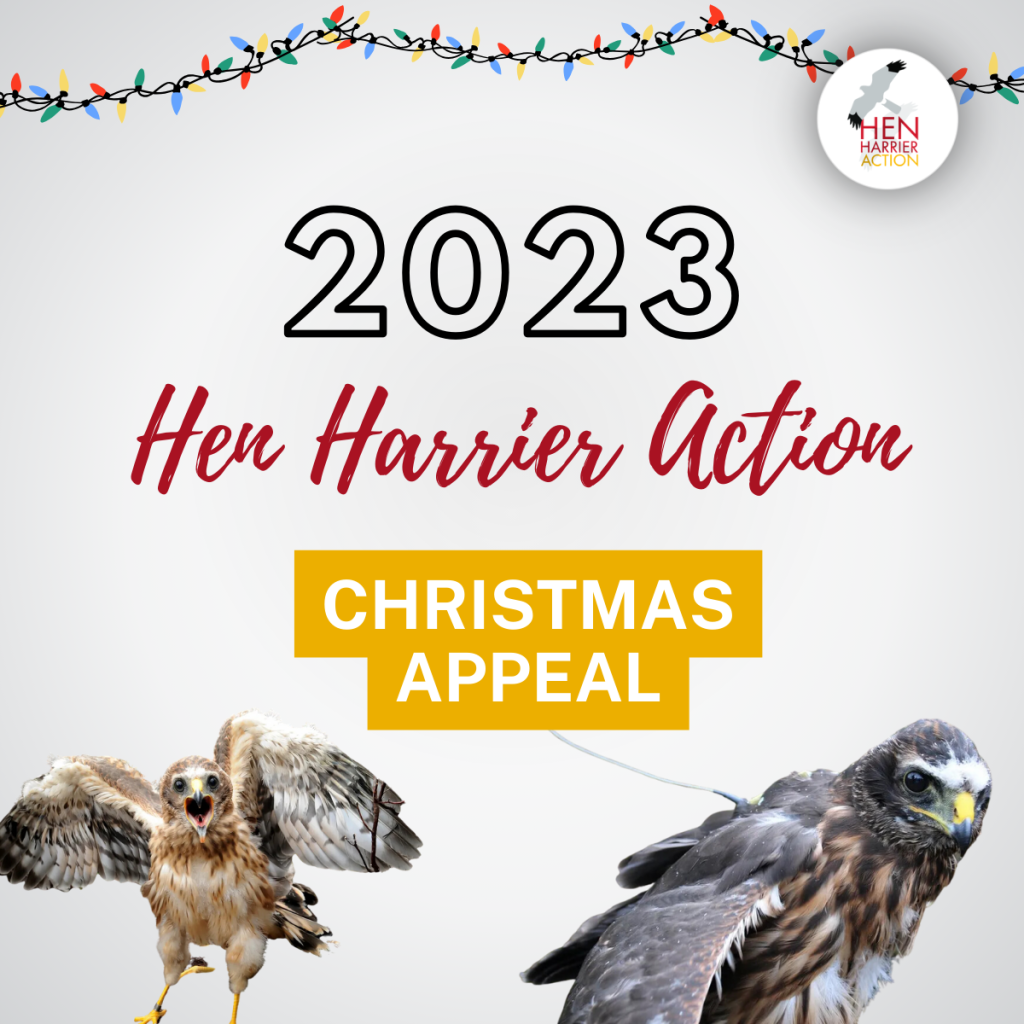
Hen Harrier Action is raising funds for Satellite Tags to fit to 4 young Hen Harriers in 2024, in a bid to protect and safeguard Britain’s most heavily persecuted bird of prey.
Hen Harriers face many threats, but the largest comes from illegal persecution: by poisoning, trapping and shooting on grouse moors.
Each satellite tag costs between £2500 – £3500. From the funds raised from this appeal, we will use our strong relationship with the RSPB to fund the tagging and monitoring of 4 young Hen Harriers in the spring of 2024.
If you care about our British wildlife and want to see a future where Hen Harriers can live freely without the constant threat of illegal persecution, then please support this appeal by donating on our GoFundMe appeal page.
You can read more about Hen Harrier Action’s Christmas Satellite Tag Appeal and our aims with the fund-raiser here.
